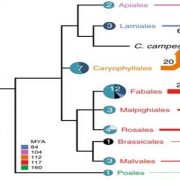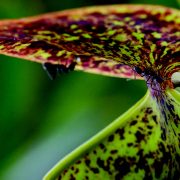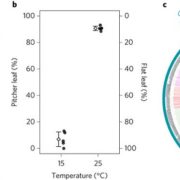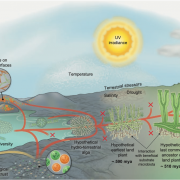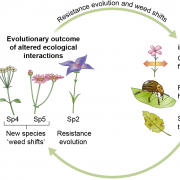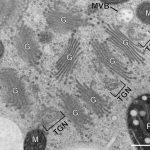Pollinators contribute to the maintenance of flowering plant diversity (Nature)
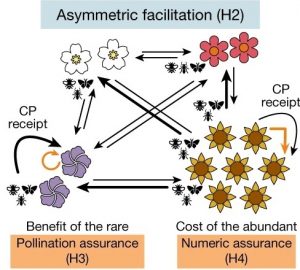 How do small populations persist in spite of sharing space with much larger populations? Wei et al. explored this question in the context of plant-pollinator interactions. They observed that rarer species tend to attract more specialized pollinators, whereas more abundant species have more shared pollinators, leading to reduced reproductive success as their pollinators were more likely to carry heterospecific pollen (from another species). This effect is termed niche specialization, and the authors showed that floral traits contribute to it. Even when they share pollinators, the rarer species benefit from the overall greater pollinator presence, whereas the abundant species suffer lower pollination rates than when grown alone, leading to lower fitness, which is termed asymmetric facilitation. The findings of this study show that conserving biodiversity relies on conserving functioning communities of plants and pollinators, not solely plant species. (Summary by Mary Williams @PlantTeaching) Nature 10.1038/s41586-021-03890-9
How do small populations persist in spite of sharing space with much larger populations? Wei et al. explored this question in the context of plant-pollinator interactions. They observed that rarer species tend to attract more specialized pollinators, whereas more abundant species have more shared pollinators, leading to reduced reproductive success as their pollinators were more likely to carry heterospecific pollen (from another species). This effect is termed niche specialization, and the authors showed that floral traits contribute to it. Even when they share pollinators, the rarer species benefit from the overall greater pollinator presence, whereas the abundant species suffer lower pollination rates than when grown alone, leading to lower fitness, which is termed asymmetric facilitation. The findings of this study show that conserving biodiversity relies on conserving functioning communities of plants and pollinators, not solely plant species. (Summary by Mary Williams @PlantTeaching) Nature 10.1038/s41586-021-03890-9



